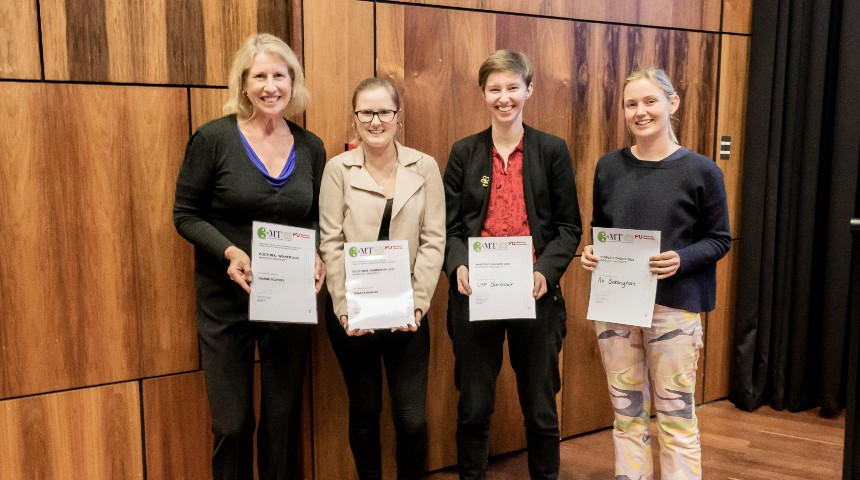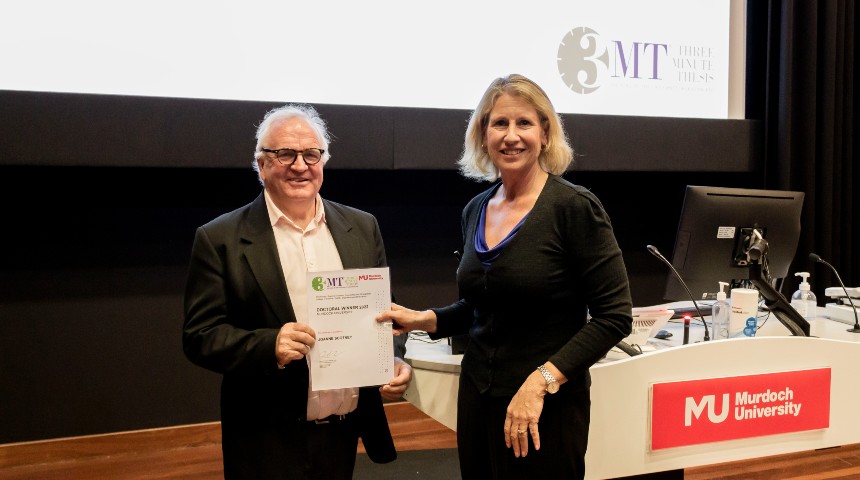
Recently, 13 PhD and Masters candidates competed in the Murdoch University final of a worldwide competition, 3 Minute Thesis (3MT), for the chance to win significant prizes towards their research.
The 3MT competitions are held across more than 85 countries with participants from over 900 universities. Even when the COVID-19 pandemic hit, students across the world continued to participate virtually.
The biggest prize at the final is provided by Murdoch University’s Graduate Research School and is awarded to a PhD candidate winner.
Doctorate Winner – Building a functional reserve
This year, judges Professor Helena Grehan, Associate Professor David Henry, Professor Simon McKirdy and Professor Peter Davies have selected Murdoch University PhD candidate Joanne Scotney to enter the Asia-Pacific finals.
Ms Scotney is investigating how to build a reserve of functional abilities, called a functional reserve, to help the 153 million people across the globe who will be living with Alzheimer’s disease by 2050.
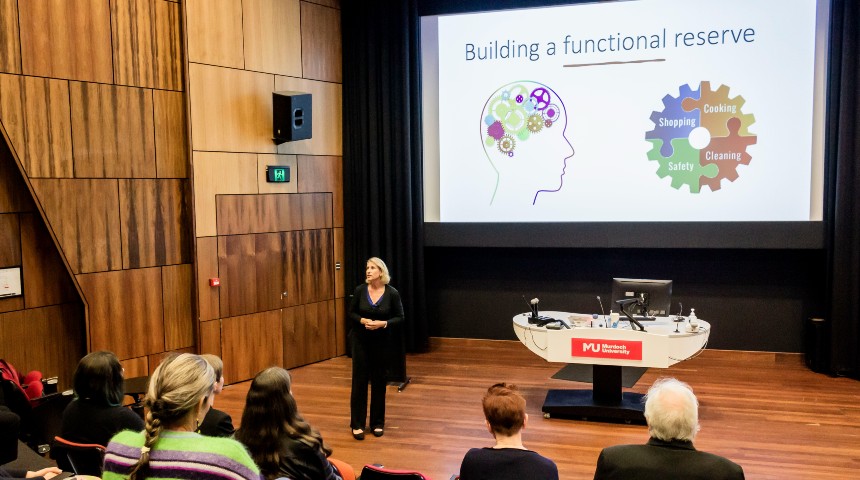
"This indicates there is something more than just memory and thinking contributing to this. Is this build up due to a reserve of everyday abilities?”
She also aims to demonstrate that a functional reserve is different to a memory and thinking reserve.
My research will focus on the toxic proteins and brain changes that occur during the onset of Alzheimer’s, along with genes and gender, to understand what role they play in our ability to perform those everyday functions, even as the Alzheimer disease progresses.”Joanne Scotney, Murdoch University PhD Candidate
There were three other final winners within the Doctorate Runner-up, Masters Winner and the People’s Choice Award categories.
Doctorate Runner-up – Artificial shelters for wildlife
Tenaya Duncan, PhD student at Murdoch University, won the Doctorate Runner-up with the prize of $1,000 for her presentation about her thesis which investigates artificial shelters for wildlife.
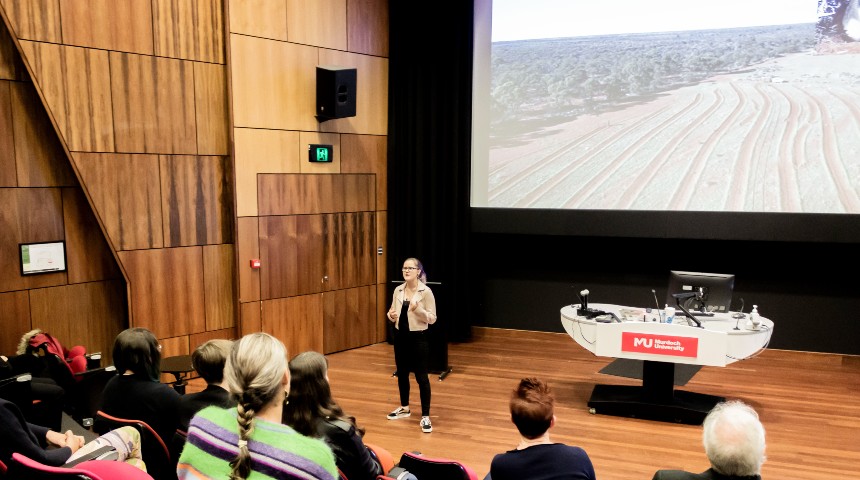
“Habitat disturbance is a significant threat to Australian wildlife, as it removes shelter from the landscape. Essentially, we are taking away their homes.
“This increases our wildlife’s exposure to feral cats, who are their own significant threat consuming up to 2.2 billion animals per year.”
“I really loved the 3MT experience. I really recommend PhD and Masters students to participate, it’s a great way to build our communication skills,” she said.
Masters Winner – Expiry date of DNA
Masters Winner, Lee Barbour was awarded $2,000 towards her research into how long it takes DNA to expire in soils and when facing the outside elements.
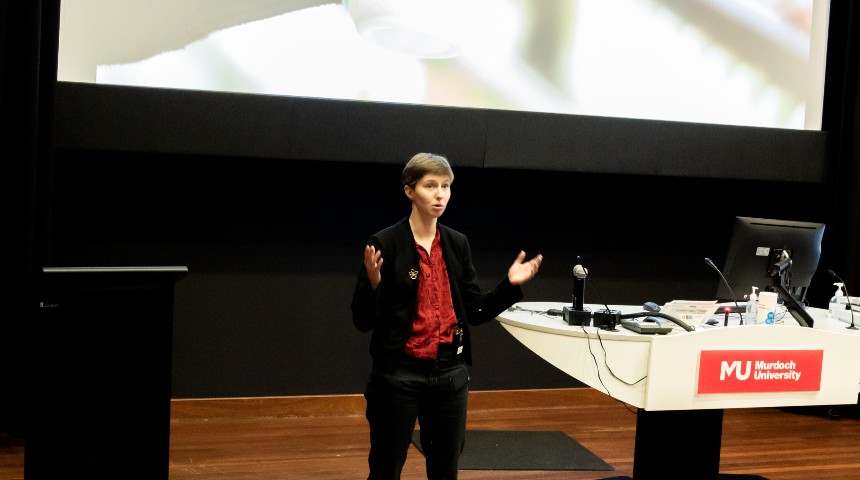
“What if information could expire? Information that could mean the difference between freedom and a lifetime behind bars.
“The information I’m referring to can be found in body fluids, especially human semen. Within semen is sperm cells and within those sperm cells is DNA. DNA is that information that allows investigators to link victim, offender and crime scene,” they said.
“When we find semen indoors or on a tiled floor, we have a pretty good idea as to the expiry date of that DNA. But what happens when a crime occurs outdoors? When semen can seep into the dirt and the mud.
“This leads investigators to have to guess the expiry date of that DNA. This means investigators may collect a sample when the information is already gone. Or worse, they don’t collect the sample and the information is still there.”
“My hope is that through this research there will be no more missed opportunities to collect evidence.”
People’s Choice Award – Building a dream urban landscape
Finally, the People’s Choice Award of $500 was presented to Ali Babington who is investigating how we can create our dream urban landscape.
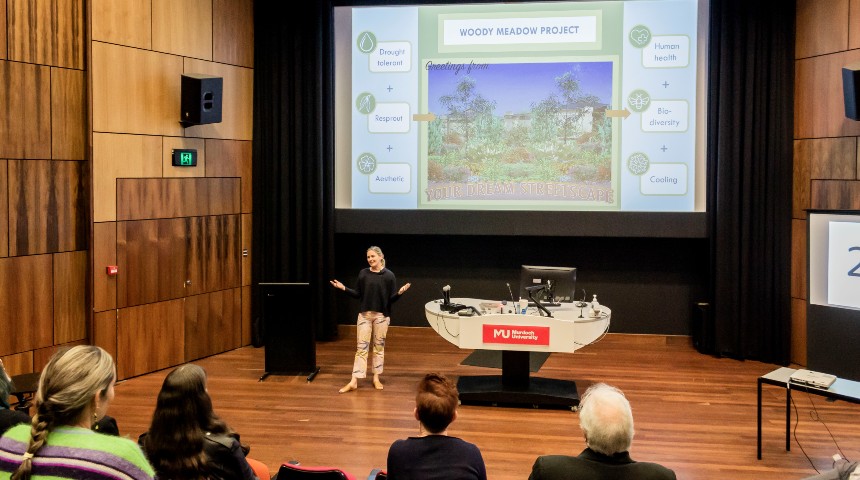
“My research will ensure that future plantings will do the best that they can in terms of plant growth and survival, and provision of maximum aesthetic benefit,” she said.
“This is important because humans need greenery. We have an innate instinct to connect with nature, which we can’t do in urban areas.
But in the future and with the help of my research, when we look outside, instead of seeing hot concrete and dead grass, we could see thriving plantings full of life that are supporting local biodiversity and human health and wellbeing.”Ali Babington, Murdoch University PhD Candidate
